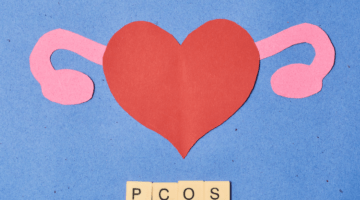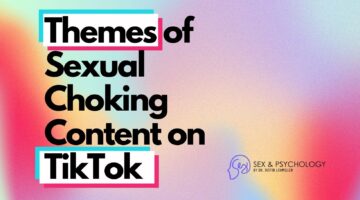What’s In A Passionate Kiss? About 80 Million Bacteria
November 21, 2014 by Justin Lehmiller
Some scientists have argued that kissing is an evolutionarily adaptive behavior. Their hypothesis is that, because kissing provides a mechanism for sharing certain types of bacteria and viruses, it could therefore potentially offer certain benefits, such as providing a form of immunization against viruses that might be harmful to a developing fetus (see here for more on this idea). However, there really hasn’t been any research on the biology of kissing that can speak to whether or not there is anything to back up this idea—until now. A new study just published in the journal Microbiome reveals that passionate kissing may fundamentally alter the composition of the microorganisms that colonize the insides of our mouths.
In this study, 21 couples had to kiss for the sake of science. Most couples were male-female pairs, but there was also one lesbian and one gay male couple included. Participants completed a survey about their kissing habits and provided oral swab samples that allowed the researchers to compare the nature of the microbiota on the tongue and in the saliva of each couple.
Participants also took part in an experiment in which one partner consumed a probiotic drink before kissing the other. This was done in order to see whether bacteria that were newly introduced to one partner transferred to the other during a 10-second, intimate kiss. Note that for purposes of this study, intimate kissing was defined as “full tongue contact and saliva exchange” (just when you thought kissing couldn’t sound any sexier, right?).
So what did they find? First, couples who kissed most frequently had the most similarity in their salivary microbiota. However, it turned out that couples needed to have at least 9 intimate kisses per day in order to have high similarity. Couples who had kissed within the last hour and a half also had more similarity in their salivary microbiota than couples who had not kissed quite as recently.
Although kissing frequency and time passed since last kiss were associated with the bacterial composition of one’s saliva, they were unrelated to tongue microbiota. That said, couples in this study did show more similarity in the bacterial composition of their tongues than they did compared to people who weren’t their partners, but the researchers attribute this to shared lifestyle and dietary habits rather than kissing.
Next, the results of the kissing experiment revealed that the marker bacteria in the probiotic drinks transferred to the kissing recipients in most cases, such that those bacteria were typically observed in the recipient’s saliva in greater quantities than they were before the kiss. Based on the samples obtained, the researchers estimated that about 80 million bacteria are transferred during a single intimate kiss.
In short, this study provides support for the idea that passionate kissing may change the composition of the bacteria inside of our mouths. But does this necessarily translate to benefits for our health? That’s a question for future study.
Want to learn more about Sex and Psychology ? Click here for previous articles or follow the blog on Facebook (facebook.com/psychologyofsex), Twitter (@JustinLehmiller), or Reddit (reddit.com/r/psychologyofsex) to receive updates.
To learn more about this research, see: Kort, R. et al. (2014). Shaping the oral microbiota through intimate kissing. Microbiome.
Image Credit: iStockphoto

Dr. Justin Lehmiller
Founder & Owner of Sex and PsychologyDr. Justin Lehmiller is a social psychologist and Research Fellow at The Kinsey Institute. He runs the Sex and Psychology blog and podcast and is author of the popular book Tell Me What You Want. Dr. Lehmiller is an award-winning educator, and a prolific researcher who has published more than 50 academic works.
Read full bio >


